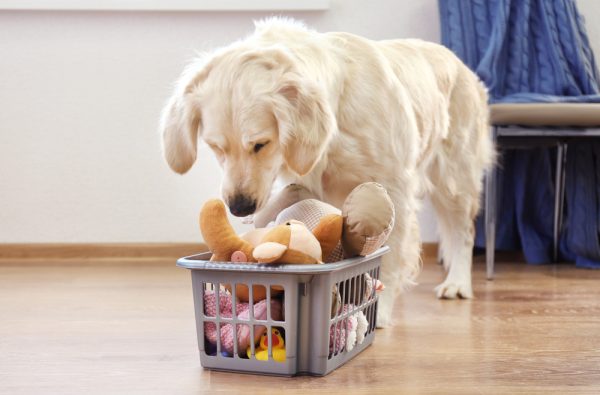In this article
View 3 More +Note: This article’s statistics come from third-party sources and do not represent the opinions of this website.
A puppy mill is a facility set up to breed large numbers of puppies for financial gain. They are typically known for their poor hygiene and living conditions, as well as for over-breeding dogs. Also known as puppy farms, puppy mills are bad for the dogs, and since the puppies are born and raised in such poor conditions, they have an increased chance of getting ill and developing behavioural problems.
New laws have been established in the UK in a bid to try to combat the problem of puppy mills, but many people argue that they don’t go far enough, though it is difficult to police the groups that run these establishments. Puppy buyers are encouraged to do their homework before settling on a breeder, ensuring that they get to meet the puppy before they buy. This way, they can check the conditions and make sure they are getting a healthy puppy.
Statistics on puppy mills and puppy farms are difficult to come by because most are illegal, which means there is no register or list of them, and statistics are based on estimates. But here, we have found 11 puppy mill statistics in the UK that still give a clear picture of the problem.

The 11 Puppy Mill Statistics
- The UK has a population of 13.5 million pet dogs.
- Twice as many people are buying from social media compared to 5 years ago.
- Around 25% of dog owners admit to not researching dog breeders before buying.
- 2.4 million dogs are sold each year on just three well-known marketplace websites.
- A third of puppies bought through social media originate from puppy mills.
- One in four puppies bought on social media gets sick or dies within a year.
- A third of buyers pay for their puppies before even seeing the dog.
- Around 25% of puppy buyers suspect the breeder they bought from was operating illegally.
- Breeders in the UK need to be licensed if their dogs produce more than three litters a year.
- One puppy farming gang was estimated to have made over £250,000 over 3 years.
- Unlicensed breeders face 6 months in prison if caught.
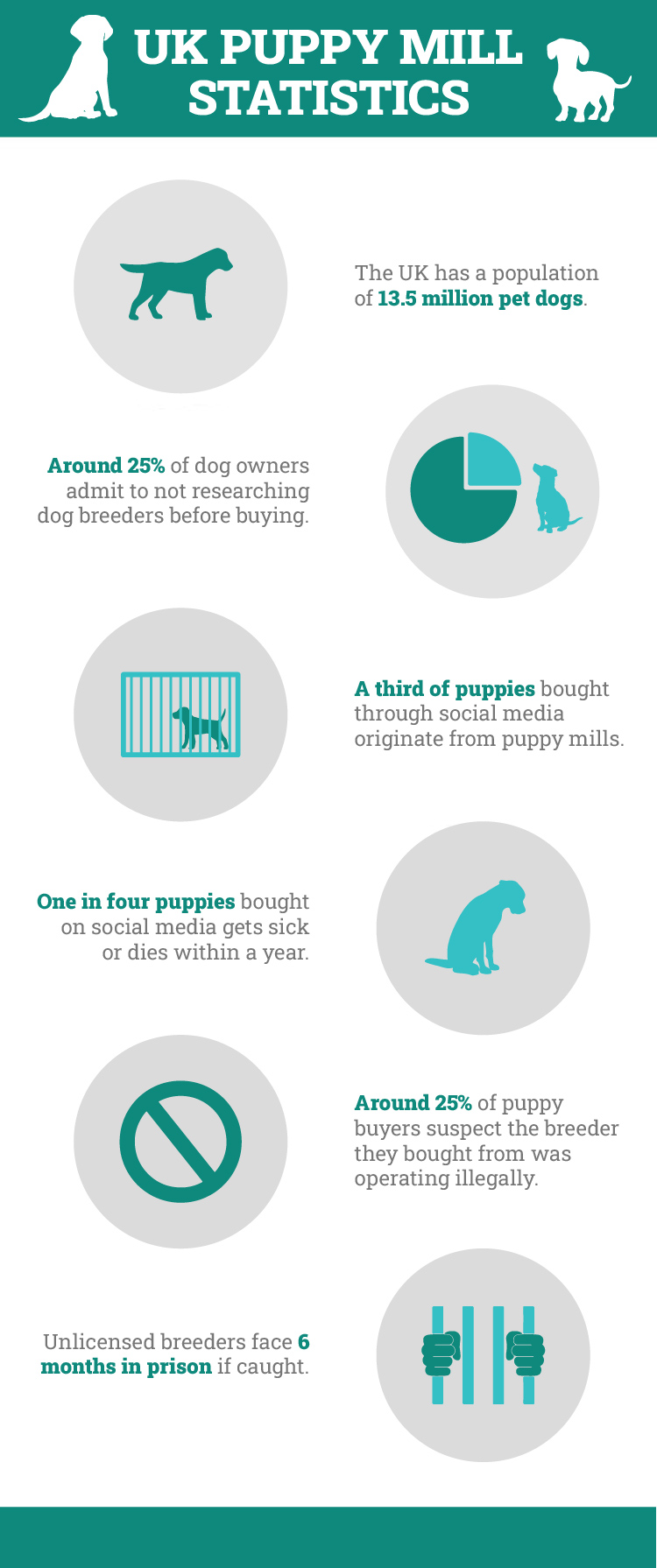

Brits and Their Dogs
1. The UK has a population of 13.5 million pet dogs.
(UK Pet Food)
Dogs are the most popular pet species in the UK, with a population of approximately 13.5 million. Cats are the second most popular, but there are a million fewer feline companions than canines.
This is equivalent to more than 30% of households owning at least one dog, though many families do own two or more pups.
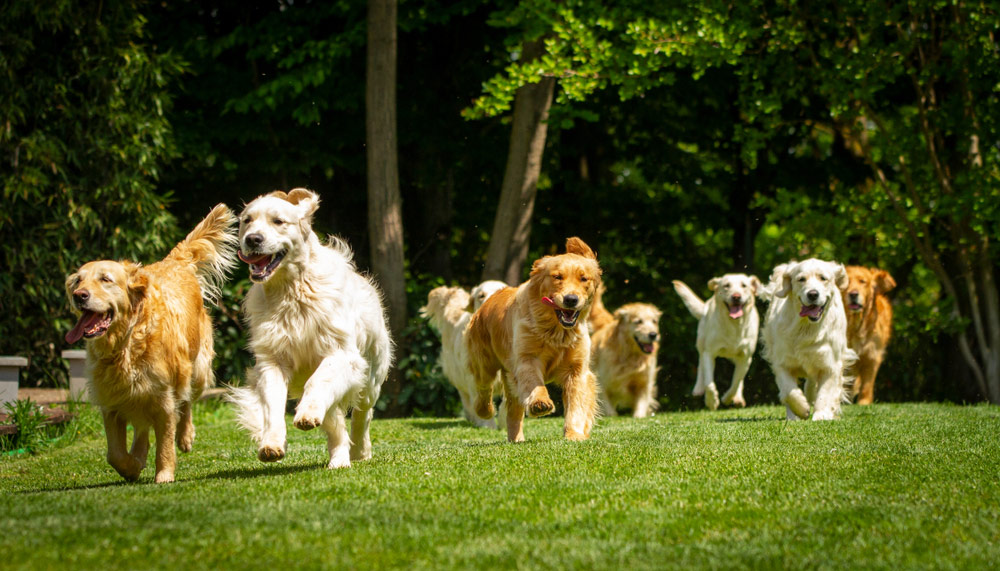
(The Kennel Club 1)
Social media has become increasingly popular in many areas of modern life, apparently even including purchasing puppies. Compared to just 5 years ago, twice as many people now buy puppies from social media. This can include groups on Facebook, as well as direct ads placed on social media websites.
Buying from social media means that the new owner has not usually had the opportunity to research breeders or ensure that the puppies are bred in safe and hygienic conditions. You don’t know what you are buying or whom you are buying from.
3. Around 25% of dog owners admit to not researching dog breeders before buying.
(BVA)
Failing to research breeders means that owners run the risk of buying from puppy farms, and it means that they have little knowledge of how well the dogs are treated or kept. Despite this, according to one survey, about a quarter of dog owners admitted to not doing any research on breeders before they purchased their puppies.
70% of owners said that they did do some breeder research before buying their dogs.


Buying Puppies
4. 2.4 million dogs are sold each year on just three well-known marketplace websites.
(Four Paws)
Besides social media websites, there has been an increase in the number of people using classified ads sites to advertise and buy dogs. There are even classified sites dedicated to selling animals. The three largest of these sites see the sale of 2.4 million dogs every year.
These sites are another possible source of puppy mill puppies, and buyers are rarely allowed to see the dogs in person before at least paying a deposit to hold a dog.
(The Kennel Club 1)
Social media is a major facilitator for puppy mill owners. Viewers get excited at the prospect of getting a new puppy and are caught up in the excitement of seeing videos and photos of what they believe to be their next dog.
The posts are not monitored, which has seen them become popular with unscrupulous puppy farm owners. It is estimated that a third of all puppies purchased through social media websites come from puppy mills.

(The Kennel Club 1)
Dogs and puppies are mistreated in puppy mills, as they are kept in poor conditions, and bitches are forced to breed repeatedly until they are no longer useful. They are also bad from the prospective owner’s point of view, as they are more likely to get sick or develop other problems.
This is part of the reason that approximately a quarter of all puppies bought via social media get sick or die in the first year of ownership.
7. A third of buyers pay for their puppies before even seeing the dog.
(The Kennel Club 2)
Buyers are always advised to see the puppy they intend to buy in person, but puppy mills and unscrupulous breeders encourage buyers to part with their money as early in the transaction as possible. Despite the advice, a third of buyers admit they did not see the puppy they bought before handing over the cash.
It can be very difficult to get the money back once the puppy is paid for.
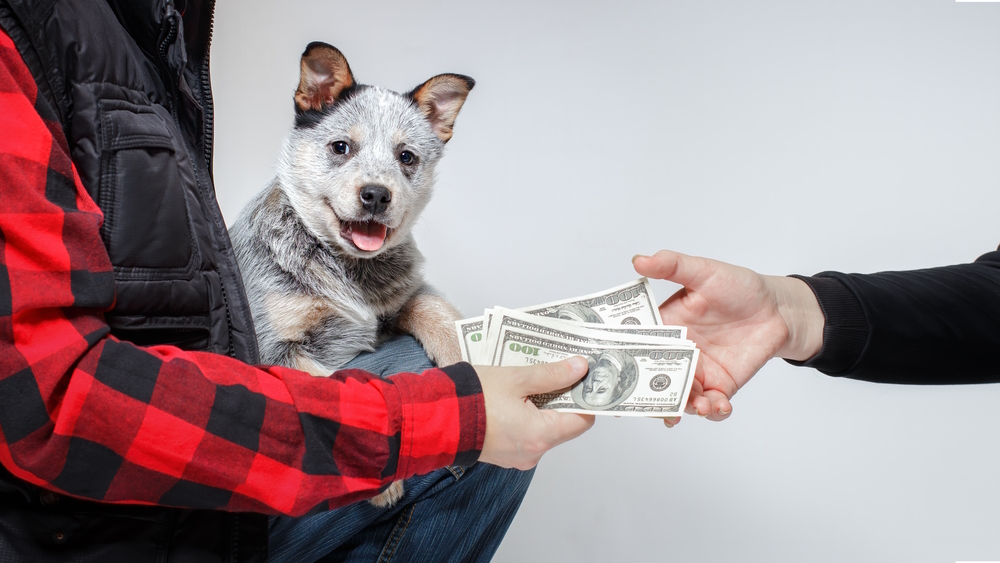
8. Around 25% of puppy buyers suspect the breeder they bought from was operating illegally.
(The Kennel Club 2)
Puppy mills use a variety of tactics to go under the radar. They will deliver the new puppy to a buyer’s home address or have the puppy ready in a house or office when the buyer turns up, ensuring that they don’t see inside the barn or other location where the dogs are kept.
As such, some buyers are unaware they are buying from this kind of establishment. But still, a quarter of buyers say that they suspect they bought their puppies from illegal breeding operations.

The Law
9. Breeders in the UK need to be licensed if their dogs produce more than three litters a year.
(BVA)
Different parts of the UK have different laws governing the breeding and sale of dogs, but all areas require breeders to be licensed if they breed more than a certain number of litters each year.
- In England, a license is required if a breeder sells more than three litters a year. It is also illegal for third parties to sell puppies, including pet stores that do not have breeder licenses.
- Wales breeders must have licenses to breed and sell three or more litters a year.
- Northern Ireland requires licenses for breeders that keep three or more bitches or who are selling more than three litters of puppies a year.
- Scotland’s laws only require licenses for those breeders who breed and sell five litters a year or more.

10. One puppy farming gang was estimated to have made over £250,000 over 3 years.
(RSPCA)
Puppy farms exist to make money, and this comes at the expense of the welfare of the animals they sell, as well as the buyers. The more puppies a mill can produce, the more money they make, and some puppy farms can make a substantial sum.
The RSPCA is the group typically responsible for investigating and building cases against unscrupulous breeders. In one case, it prosecuted one group that it estimated to have sold 439 puppies in 3 years, bringing in more than £250,000.
11. Unlicensed breeders face 6 months in prison if caught.
(Gov.uk)
Campaigners are calling for harsher penalties for illegal breeders, as a means of deterring gangs like the one mentioned previously. New laws were passed in 2020, and the government said that perpetrators could receive a maximum 6-month prison sentence if they were prosecuted for illegal breeding.
Campaign groups do not believe that this is enough of a deterrent, and the high number of puppy mills still in existence do seem to bear this out.

Frequently Asked Questions (FAQ)
What is a puppy mill?
A puppy mill is an establishment where puppies are bred for profit without any care for the animals’ well-being. It typically operates illegally, ignoring the requirement to have licenses for breeding a certain number of litters, meaning that puppy mills are rarely investigated for their activities.
Puppy mills, also known as puppy farms, can be difficult to detect because they use various techniques to keep their operations hidden.
Are puppy mills harmful?
The puppies, as well as their breeding parents, are kept in poor conditions. They will usually be given very little room and will only have the bare minimum food and water to ensure they live.
The puppies themselves are more likely to suffer illnesses and hereditary conditions, and due to the poor socialisation that they receive, they can grow up to develop behavioural and social problems that make them challenging pets.
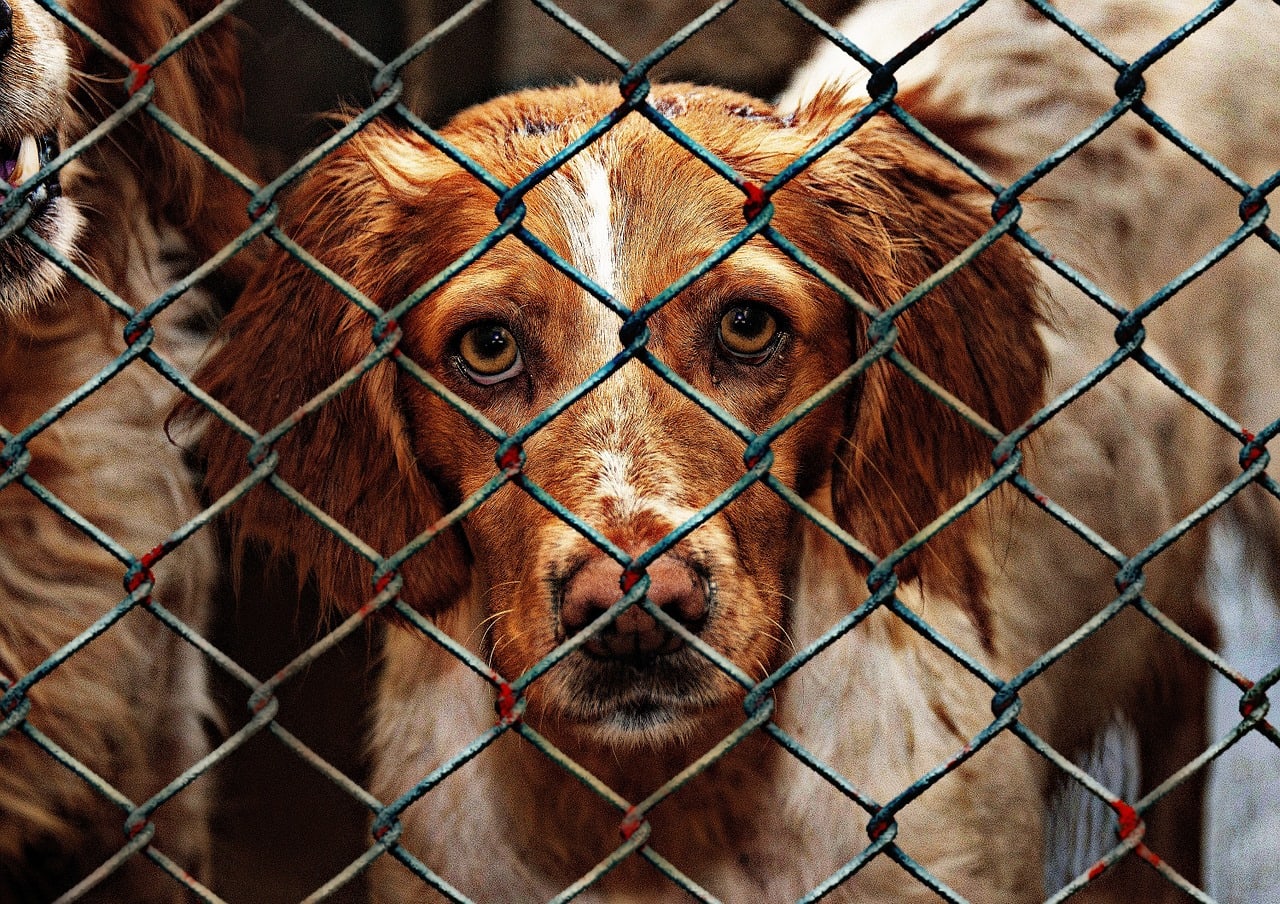
How can they be stopped?
It is difficult to locate puppy mills. The mill owners will usually deliver puppies to their new owners, or they will have a house or other location where they show the puppies and hand them over to new owners. This means that the poor conditions are never spotted, and new owners are left none the wiser.
New laws have been introduced., though Breeders need licenses to produce and sell more than a certain number of litters every year, and owners can face prison sentences if they are found to be breeding dogs illegally.
How can people be sure they aren’t buying from a puppy mill?
Buyers should always research the breeders they are buying from. Check online for genuine reviews, speak to the breeder over the phone, and ensure they visit the breeder and meet the puppy and their mother before agreeing to a purchase. It is also possible to check insurance documents, as well as council licenses and any kennel club documentation. If a breeder refuses to provide any of this information, the buyer should think twice before buying from them.
The Kennel Club also has an Assured Breeder scheme that works like a certificate of quality, and it is worth checking this database to find reputable breeders of different breeds. There are reputable breeders out there, but you do need to do your homework to ensure that you are using one and are not encouraging illegal breeding through puppy farms. (The Kennel Club 3)

Conclusion
Getting a puppy is exciting, but owners shouldn’t overlook the possibility they are patronising an illegal puppy mill when buying their next dog. Do your research before deciding on a breeder, avoid buying from social media or using ads placed on social media websites, and consider using The Kennel Club’s Assured Breeder program or better still, adopting a puppy from a rescue or shelter.
Puppy mills typically keep their dogs in unsanitary conditions, which causes ill health and behavioural and social issues in the pups they breed. It’s bad for the dogs and can be heartbreaking for the new owners.





